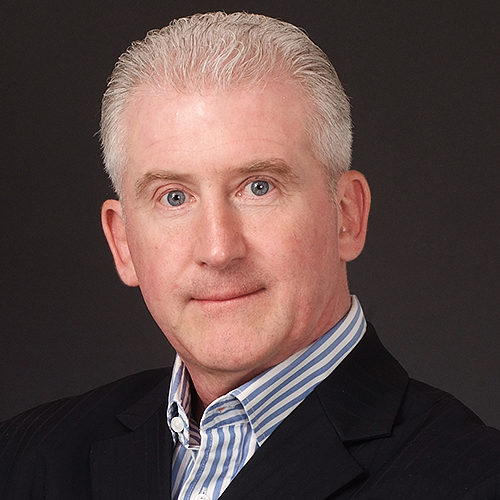
When it comes to fintech in Asia, most companies and pundits now agree that the adoption of emerging technologies (artificial intelligence, blockchain, cloud and data & analytics) is a marathon rather than a sprint. This was clear at the 2018 Singapore Fintech Festival, where a pulse survey by Broadridge Financial Solutions revealed that 92% of respondents are participating in the marathon, but are at very different stages of the race.
Among respondents – which included capital markets, asset management, wealth management and fintech firms as well as diverse corporates – 15% indicated that they are already using new financial technologies and are ready for the long run. Another 32% are implementing new technologies to automate processes, drive efficiencies and improve operations. However, 45% are still warming up, either researching new technologies and talking to fintech firms or investing in and building new technologies in house or with a partner.
Differing strategies for the long run
Overall, the firms we talked to were equally diverse in terms of which emerging technology they expect to revolutionise the financial services industry over the next five years. Artificial intelligence (AI), blockchain or data & analytics were selected in equal measure (27% each) with cloud slightly lagging (19%).
However, capital markets firms stood out, with 55% expecting cloud and 38% expecting AI to be the most transformational. These firms may be most bullish on cloud as the relatively mature technology is already delivering efficiencies and cost savings to the industry. The actual impact that nascent technologies like blockchain will have is less clear at this time.
On the other hand, fintech firms in general – the companies who are developing and supplying emerging technology and solutions to financial firms – highlighted data & analytics (44%) and blockchain (31%) as the leading technologies expected to be revolutionary followed by AI (19%) and cloud (18%). This spread is likely as much an indication of the key technologies they are developing as it is their relative expectation for market impact.
Many miles to run
Regardless of which technology they are relying on, all of the companies we spoke to at the festival are facing hurdles as they move towards adopting new financial technologies. The two biggest challenges identified by respondents regardless of where they are in the fintech marathon were regulatory uncertainty and the internal challenge of changing team mindsets and behaviours.
External regulatory uncertainty was cited by 51% of respondents, indicating a high degree of concern over how external factors could affect their business plans. For firms that are already well along the path to fintech adoption, this could arise from fear that the time and money already invested in next-generation financial technologies could be rendered moot if new regulations are not compatible with the workflow or outputs of these technologies. For instance, the EU's Markets in Financial Instruments and Derivatives II (MIFID II) regulations requires that brokers/dealers deliver best execution of client trades, but this could be difficult to prove if trade execution is handled entirely or in part by an AI solution.
Regulatory uncertainty was followed closely by the internal challenge of changing mindsets and behaviours within their own teams, cited by 41% of respondents. This has been a consistent theme for every wave of new technology historically.
Interestingly, internal mindsets and behaviours seem to be a similarly important challenge for those well along the road to fintech adoption – cited by 44% of those who are "using new technologies and ready for the long run" – as it is for those who have yet to begin the process – cited by 60% of those "still relying on legacy technology".
The cost challenge of adopting new financial technologies was not nearly as much of a factor as many might expect. Whereas up to a third of respondents cited budget constraints as among their concerns, it was only an outsize hurdle to those "still relying on legacy technology", at 60%.
There is no "I" in marathon
Of course, when we think about fintech adoption as a marathon, there is no need for companies to tackle the distance alone. Although we tend to think of financial firms as lone contenders, a variety of fintech service and solution providers are working to help address the internal and external challenges all companies face.
This has myriad implications for how firms can tackle the challenges ahead. Partnering with a fintech firm means that an established financial services firm need not shoulder the entire financial or operational risk of developing new technologies. It also means that they can look to partners for advice on how new technologies can be implemented alongside and within their current IT infrastructures.
This partner approach is potentially the best way to address the key hurdles faced by the companies we spoke with. Working with partners to apply new technologies to existing IT architectures should minimise internal resistance as it represents an evolution rather than a revolution. At the same time, current processes that meet regulatory requirements can remain in place for the foreseeable future.
One example of this approach is the way that Broadridge is developing emerging technologies such as natural language processing (NLP), computer vision, robotic process automation (RPA) and machine learning to interact with internal and external applications. This approach enhances efficiency and improves operations without requiring radical overhauls of systems and processes, allowing firms to operate in their existing compliance environments while also generating new learnings that can help design the systems of tomorrow.
With most financial firms in the early stages of the fintech marathon, now is the time to implement strategies and develop technology roadmaps for the long path ahead. Working with the right team and identifying how to address key internal and external hurdles now can make the difference between being in the leading pack or being a nonstarter.
David Becker is head of Asia Pacific at Broadridge









